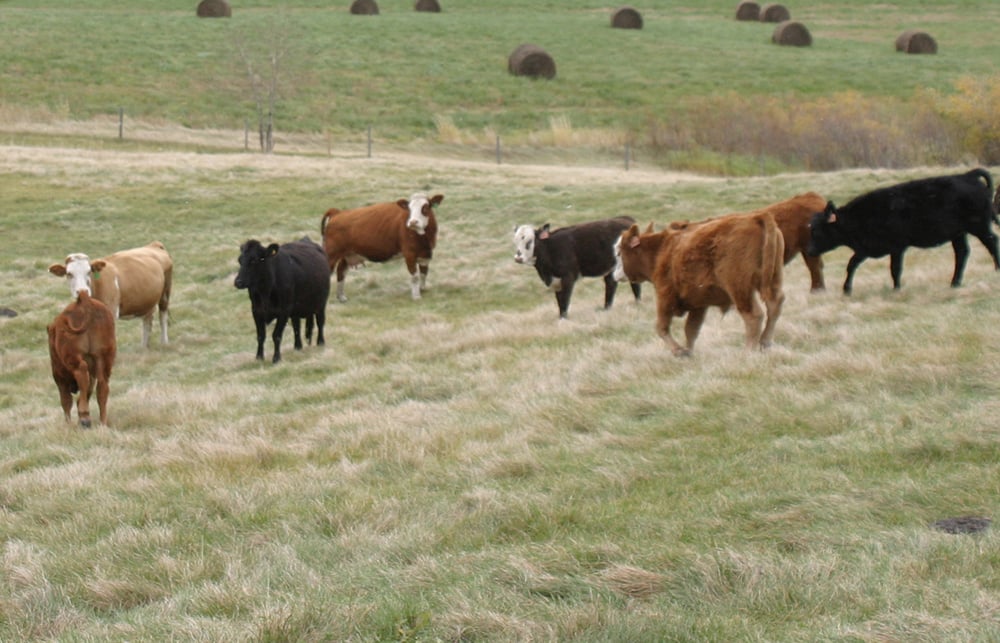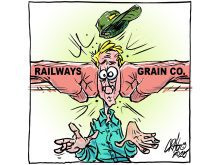A week ago the United Nations managed to find another cow pie to step in. Taking to social media, the UN tweeted that the meat industry was responsible for more greenhouse gas emissions than the world’s biggest oil companies.
The forehand slap was for livestock production. The backhand was aimed at the petroleum industry.
After a few days of pressure, mostly from the livestock and scientific communities, the UN pulled the tweet from its official account.
Global reaction was sparked by these words: “The meat industry is responsible for more greenhouse gas emissions than the world’s biggest oil companies. Meat production contributes to the depletion of water resources and drives deforestation.”
Read Also

Higher farmland taxes for investors could solve two problems
The highest education and health care land tax would be for landlords, including investment companies, with no family ties to the land.
Researchers and governments took issue. Frank Mitloehner from the University of California at Davis, an air quality expert with a background in debunking myths related to greenhouse gas emissions, suggested via Twitter that the UN’s own Food and Agriculture Organization should review these “astonishing claims. Global livestock emits more GHG than big oil companies — seriously?”
The Cattle Council of Australia said the UN’s tweet was an “absurd simplification” and misleading.
That country’s agriculture minister, David Littleproud, said the tweet undermined the UN as an organization and indicated it is “becoming irrelevant.”
The UN has long been adding fuel to the more-obvious-than-real fires by providing simplistic answers to complicated questions around livestock production.
It’s 2006 “Livestock’s Long Shadow” report painted the industry as a polluter greater than all of global transportation. That misleading report did indeed cast a shadow that darkens the doors of many farms to this day.
Its flawed design, later acknowledged by the FAO, measured a full lifecycle analysis of agricultural production including every element from land and equipment to labour, all costs of feed production and consumption. But for transportation, it focused only on fossil fuel emissions. That unworthy comparison was immediately, and to this day, adopted and heavily used by popular media and opponents of high-production agriculture.
Like any big crop, a large harvest of bad information has a lasting impact.
The UN and its FAO have continued to release, with some regularity, reports negatively citing agriculture for its role in carbon emissions.
A recent Intergovernmental Panel on Climate Change — yes, another UN body — confirms that global releases of greenhouse gases from agricultural production, which are mostly for food, are between 16 and 27 percent of those created by human activity. Half of that is related to livestock production.
In North America about 10 percent of GHG emissions come from farming activities, while 28 percent are from transportation, 27 from electricity production, 22 from industrial consumption and 12 from residential use, according to several sources in government and research.
Yet livestock production remains an easy target, despite being among the lowest emitters and part of a carbon cycling process that both produces and sequesters.
The FAO’s more recent reports still tar agriculture. But upon further reading, which the author of the original UN tweet should have done, they note the IPCC’s confidence in their findings is “medium.”
Unfortunately, with 96 percent of our fellow Canadians having no relationship to the farm, most will not bother to read much beyond the headline or 140 character tweets from a respected agency to better understand the truth.
We need to remain vigilant in the defense of good science and speak up when non-science threatens farming reality.
Karen Briere, Bruce Dyck, Barb Glen and Mike Raine collaborate in the writing of Western Producer editorials.















